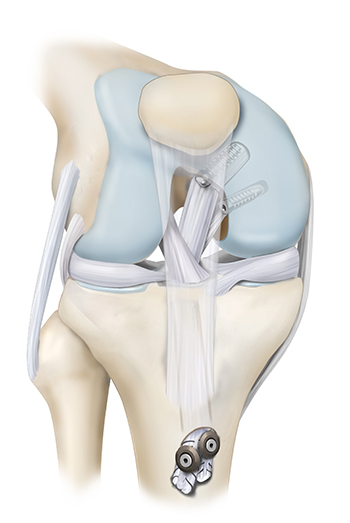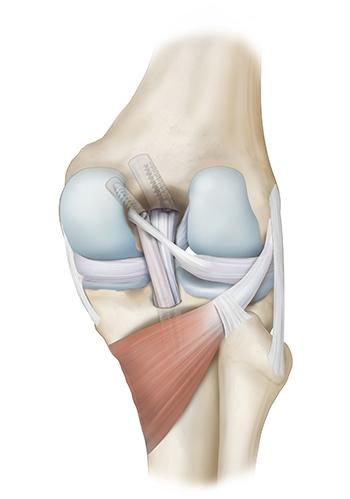PCL Injuries Surgical Treatment
What are the surgical treatment options for a PCL injury?
For patients with combined ligamentous injury, chronic cases, or those that remain symptomatic despite the conservative treatment, surgery is recommended. PCL surgery is similar to ACL surgery in that it involves drilling tunnels into your tibia and femur before fixing a graft into those tunnels. However, because the PCL is bigger than the ACL, it typically requires two grafts to truly replicate the anatomy and biomechanics. An Achilles tendon allograft and a hamstring tendon allograft are the two most often used grafts for the double-bundle PCL reconstruction gold-standard technique.
Although a more challenging technique, substantial evidence suggests that the double bundle technique (two grafts) is superior in terms of knee function and stability compared to a single bundle PCL reconstruction. Recall that the PCL has two bundles: the anterolateral bundle and the posteromedial bundle. The anterolateral bundle prevents excessive front-to-back motion of the tibia, while the posteromedial bundle prevents excessive rotation of the tibia. Thus, as the two bundles have different primary functions, it is necessary to reconstruct both bundles when the PCL is torn.


For severe PCL injuries, particularly complete ligament tears or cases with persistent instability, surgical reconstruction may be required to restore knee function. Dr. Jorge Chahla specializes in PCL reconstruction surgery, utilizing minimally invasive techniques to promote healing and faster recovery. If you have a PCL injury that requires surgery, contact Dr. Chahla’s office in Chicago, Naperville, or Oak Brook to discuss your options.
- Triple fellowship-trained sports medicine surgeon
- Performs over 800 surgeries per year
- Associate professor of orthopedic surgery at Rush University
- Learn more
